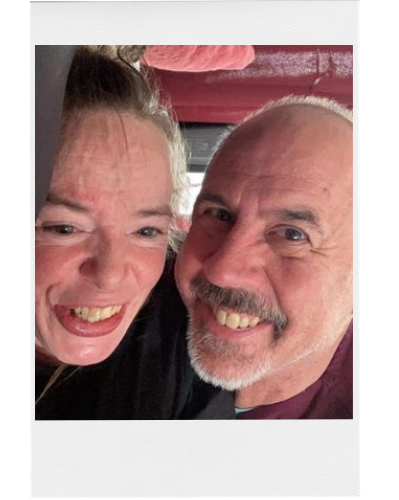
Like most people, Emily Blu loves spending time with her friends, family, and online. She likes fishing and country music. She misses her father, who recently passed away due to cancer. In some ways, her life is normal. And in some it is not, because Emily has GM1 Gangliosidosis.
Emily was born in 1970 and had a normal, happy childhood surrounded by a loving family. In her teens, however, Emily began to notice strange changes in her body. Her movements became slower, and she gradually developed a gait that had her walking on her toes. Her parents took her to the doctor, who conducted many tests to find out what was wrong. Back then, GM1 was even less known than it is now, so her doctors did a lot of testing. In all the tests, which even included skin biopsies, nothing showed up.

The Diagnosis

Her journey to diagnosis included rounds of increasingly niche testing, especially genetic testing. Eventually, in 1989 when Emily was eighteen, her parents got a phone call from a doctor in Philadelphia at the Thomas Jefferson University. He told them what they had been waiting ages to hear. Emily had a diagnosis for GM1 Gangliosidosis, type three adult onset. A rare genetic disorder with no cure. At that time, she was one out of 45 reported cases nationwide, and was given the prognosis that she wouldn’t live to see her 40th birthday.
Years passed and Emily’s symptoms slowly but steadily worsened. One day in 2000, when she was 30, she woke up unable to walk. Overnight. She has been in a wheelchair ever since. As time went on her ability to concentrate waned, too, making it difficult for her to focus on movies and books. She has a speech impediment that makes it hard for others to understand her. She also lost the ability to feed herself. Because of these things, she took up residence in a group home care facility.

Life With GM1 Gangliosidosis

Emily’s 40th came and went, and then her 50th. Today she is 51 years old and still going strong. When asked about how this disease has impacted her, she acknowledges it challenges her on a daily basis, but also says:
“I’m not going to be letting anything get me down. I’m stronger than my disease. GM1 has helped me to become a stronger and more grateful person, and I would not change it for anything.”
What does she wish people knew about GM1 Gangliosidosis? That it’s not a contagious disease, and that people who have it are people that need love.
You can help us improve the diagnostic odyssey for patients like Emily. Donate today.
